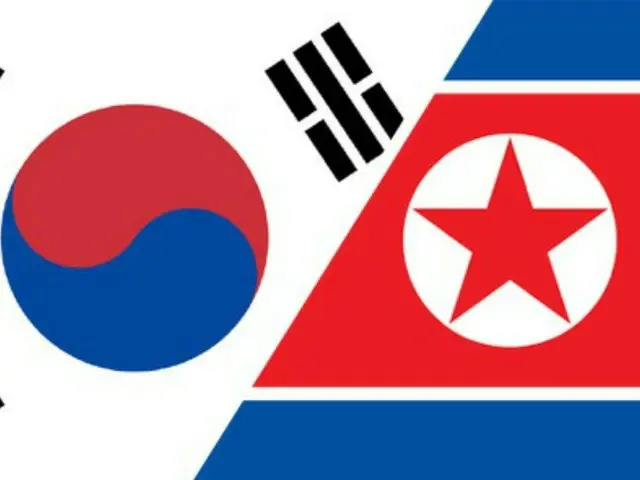This is part of a policy to ease tensions with North Korea. The Lee administration has already stopped the propaganda broadcasts using these speakers on June 11th of this year. North Korea has also subsequently stopped its "noise broadcasts" aimed at South Korea.
The removal of the car goes a step further than the suspension of broadcasts, and the Ministry of National Defense has described it as a "substantial measure that will help ease tensions between North and South Korea."
In June last year, the South Korean military announced that North Korea had flown balloons with filth and other materials toward South Korea.
As a countermeasure against the spread of the virus, the South Korean military resumed propaganda broadcasts using loudspeakers near the North-South military demarcation line for the first time in six years.
The broadcasts have been suspended and resumed repeatedly as relations have improved and worsened. The broadcasts are carried out using large speakers, and the content includes appeals to the public that South Korea's democratic system is superior to North Korea's political system,
The broadcasts include criticism of the North Korean regime, news from South Korea and other countries, and South Korean songs. These broadcasts are said to have a significant psychological impact on North Korean soldiers.
Prior to this, the then Yoon Seok-yeol administration had announced that the North-South military agreement was to be
The agreement, known as the "September 19 Inter-Korean Military Agreement," was signed in September 2018 by then-President Moon Jae-in and North Korean leader Kim Jong-un.
The agreement is an addendum to the Pyongyang Joint Declaration, which was signed in 1999. Propaganda broadcasts near the North-South military demarcation line were suspended as a result of the agreement, and on the first day broadcasts resumed in June last year, the patriotic song (South Korea's national anthem) was broadcast, with the message "North Korea
The broadcast began with Naeun saying, "Hello, fellow Koreans." South Korea's Samsung Electronics smartphones are the top sellers in 38 countries worldwide.
In addition to reporting on the recording of the virus and inflationary trends in the North Korean market, the program also played K-POP songs such as the hit song "Dynamite" by the popular South Korean group BTS.
Meanwhile, North Korea has positioned the relationship between North and South Korea as "two hostile nations" from the end of 2023, and in October last year amended its constitution to define South Korea as an "enemy nation."
The North Korean government blew up roads and railways leading to South Korea. The state-run Korean Central News Agency said at the time that it was an "unavoidable and legitimate measure taken in accordance with the provisions of the North Korean Constitution." It also said that it was a way to counter propaganda broadcasts from South Korea.
The North-South relationship remains tense, but Lee Jae-myung, who became South Korean president in June this year, signed the aforementioned North-South military agreement in May before taking office.
In the same month, he delivered a congratulatory speech at the ceremony commemorating the 2000 inter-Korean summit, calling for an end to debilitating hostile acts (with North Korea) and the resumption of dialogue and cooperation.
He reiterated his desire to improve relations, saying, "We will make every effort to ensure peace, coexistence, and prosperity on the Korean Peninsula."
Under Lee's instructions, the South Korean military implemented the aforementioned measures in June.
The propaganda broadcasts were halted. As part of the Lee administration's efforts to ease tensions with North Korea, attention was focused on the North Korean reaction. After the broadcasts were halted, North Korea also stopped its "noise broadcasts" aimed at South Korea.
As the Lee administration seeks to quickly resume dialogue with North Korea, Kim Yo-jong, the younger sister of North Korean leader Kim Jung-un, issued a statement last month.
"If a country expects to be able to erase all the consequences of its actions with a few sentimental words, it could not have made a greater mistake," he said, adding, "What policies are adopted in Seoul?
"Even if such a proposal is made, we have no interest in it, and we would like to make it clear once again that there is no reason to seek dialogue with South Korea, nor are there any issues to discuss," he said, stressing that South Korea
Meanwhile, on the 4th, the South Korean Ministry of National Defense began removing about 20 fixed speakers that had been used in the broadcasts that were suspended in June. The work was completed by the 6th.
The Lee administration hopes that these measures to ease tensions between North and South Korea will lead to the resumption of dialogue with North Korea, but in the aforementioned speech, Kim Yo-jong said that South Korea's decision to suspend the broadcast "was something that should not have been done."
"It's just a return to the former. It's not something that will be well received," he said, indicating that resuming dialogue will not be easy.
2025/08/07 11:57 KST
Copyrights(C)wowkorea.jp 5

